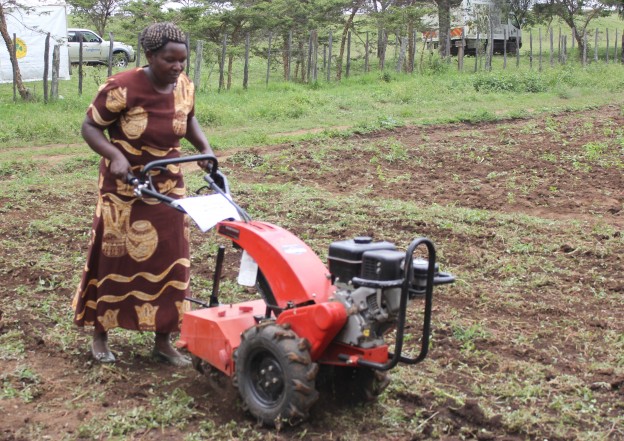Project news: Gender matters in farm power
Although mechanisation has the potential to close the gender gap in agriculture, past efforts based on large four-wheel tractors have generally led to inequitable access to mechanisation, favoring wealthier farmers, and have often widened the gender gap. The goals of the Farm Mechanisation and Conservation Agriculture for Sustainable Intensification (FACASI) project are to address the issue of declining farm power in eastern and southern Africa, and reduce the labor burden that comes with low farm mechanisation, by promoting small-scale mechanisation based on two-wheel tractors.
Project Leader Dr Frédéric Baudron, has written an article highlighting some the findings from a CRP MAIZE-funded Royal Tropical Institute (KIT) gender analysis of small-scale mechanisation in the FACASI sites of Ethiopia (Hawassa and Assela) and Kenya (Bungoma and Laikipia).
Farm power is particularly scarce for female-headed households, who have limited access to human labor and often don’t own (or are culturally forbidden to operate) draft animals. Female-headed households are often the last households to access land preparation services, which leads to lower yields. Even in households headed by men, women supply most of the farm labor and perform highly labor-intensive tasks, such as weeding, threshing, shelling or transport of inputs and agricultural commodities to and from the market by head-loading.
The first conclusion of the study is that women’s labor burden itself is unlikely to translate into demand for mechanisation, because women’s labor is poorly valued, women’s labor burden is often not recognised and women have little control over the financial resources of the household. However, mechanising men’s tasks could indirectly reduce women’s labor burden. For example, mechanising land preparation and seeding – generally a task handled by men – may reduce the need for weeding – a task generally done by women – because of early planting and good crop establishment.

